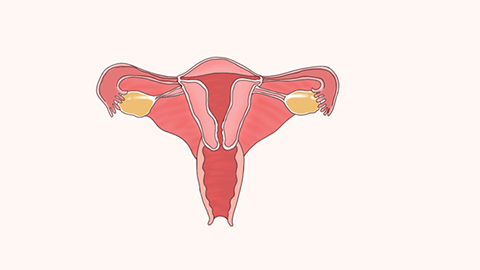What causes an enlarged uterus?
Generally, an enlarged uterus may be caused by pregnancy, incomplete uterine involution after childbirth, adenomyosis, uterine fibroids, or uterine hypertrophy. It is recommended to seek timely medical consultation to identify the underlying cause and receive appropriate treatment under a physician's guidance. Detailed explanations are as follows:

1. Pregnancy: After conception, the embryo develops inside the uterus, causing the uterus to gradually enlarge with gestational age to accommodate the fetus and associated structures. This is a normal physiological process that does not require special treatment. Regular prenatal checkups are necessary to monitor fetal development and uterine changes.
2. Incomplete Uterine Involution Postpartum: If the uterus fails to return to its pre-pregnancy size after delivery, it may be due to poor uterine contractions or retained placental tissue, leading to persistent uterine enlargement accompanied by prolonged lochia and lower abdominal heaviness. Applying heat to the lower abdomen can help promote uterine contraction. Medications such as oxytocin injection, motherwort granules, and other prescribed drugs may be used according to medical advice to aid uterine recovery.
3. Adenomyosis: This condition occurs when endometrial tissue infiltrates the uterine muscle layer, causing thickening of the myometrium and uniform enlargement of the uterus. It is often accompanied by progressive dysmenorrhea and increased menstrual bleeding. Patients may follow medical advice to use medications such as gestrinone capsules, dydrogesterone tablets, or norethisterone tablets to alleviate symptoms.
4. Uterine Fibroids: These are benign tumors formed by the abnormal proliferation of uterine smooth muscle cells. As fibroids grow, they can cause overall enlargement of the uterus, accompanied by menstrual irregularities and abdominal masses. Small fibroids can be monitored regularly. If fibroids are large or symptoms are significant, medications such as Cinnamon Twig and Poria Capsules, Fibroid Eliminating Capsules, or Hongjin Anti-adhesion Tablets may be used according to medical guidance to control fibroid growth.
5. Uterine Hypertrophy: Chronic inflammatory stimulation or ovarian dysfunction may lead to thickening of the uterine muscle layer and uniform enlargement of the uterus. Symptoms may be absent or include increased menstrual bleeding. Patients may follow medical advice to use anti-inflammatory medications such as cefixime dispersible tablets, levofloxacin hydrochloride capsules, or metronidazole tablets.
In daily life, it is important to keep the body warm during menstruation, avoid strenuous exercise, maintain a regular sleep schedule, and reduce熬夜 (sleep deprivation/late nights). Diet-wise, avoid spicy and irritating foods, and consume more fresh vegetables and fruits. Maintaining a positive mindset and avoiding excessive anxiety also contributes to maintaining uterine health.





